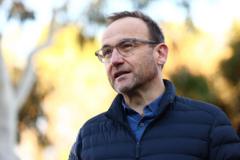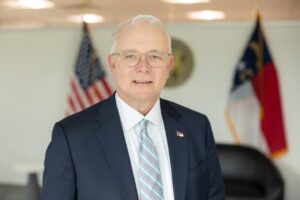The president of Austria has tasked Herbert Kickl, leader of the Freedom Party, with forming a coalition government following the party's electoral success, raising concerns about the implications of far-right leadership in the nation.
Austria's Political Landscape Shifts with Potential Rise of Far-Right Leadership

Austria's Political Landscape Shifts with Potential Rise of Far-Right Leadership
Herbert Kickl, leader of the far-right Freedom Party, receives mandate to form a government amid stalled coalition talks by mainstream parties.
The political scene in Austria has taken a notable turn as Herbert Kickl, the leader of the far-right Freedom Party (FPÖ), has been given the opportunity to form a government following a challenging election cycle and failed coalition negotiations among mainstream parties. Kickl's party emerged victorious in the most recent elections held on September 29, securing nearly 30% of the vote, but fell short of a majority.
President Alexander Van der Bellen announced Monday that he has asked Kickl to lead the coalition-building efforts. "Mr. Kickl is confident that he can find viable solutions in the context of government negotiations, and he wants this responsibility,” Van der Bellen stated after their meeting. This development marks a significant moment in Austria's politics, as Kickl's leadership aligns with the party's anti-immigration stance and its controversial history stemming from its founding by ex-Nazis in the 1950s.
Initial attempts by the current chancellor and leader of the conservative Austrian People's Party (ÖVP), Karl Nehammer, to form a stable government were unsuccessful. Nehammer, who garnered 26.5% of the vote, reached out to the center-left Social Democrats and the Neos party, yet their discussions collapsed over budgetary disagreements, prompting both parties to withdraw from negotiations.
The potential rise of Kickl as Austria's first far-right chancellor since World War II raises critical questions about the future direction of the government and the sociopolitical climate in Austria. Once considered a possible pariah within the government framework due to accusations of being a danger to democracy, Kickl's party now holds significant power.
The ramifications of a successful coalition led by the Freedom Party could reverberate not just within Austria, but across Europe, as right-wing populism continues to gain traction in various nations. Observers and citizens alike are watching closely to see how the political equations will evolve in the coming weeks and what this could mean for Austria's policies on immigration and governance. The conversation surrounding Kickl’s potential leadership is not only about political power but reflects broader themes of nationalism and identity within Austrian society.























